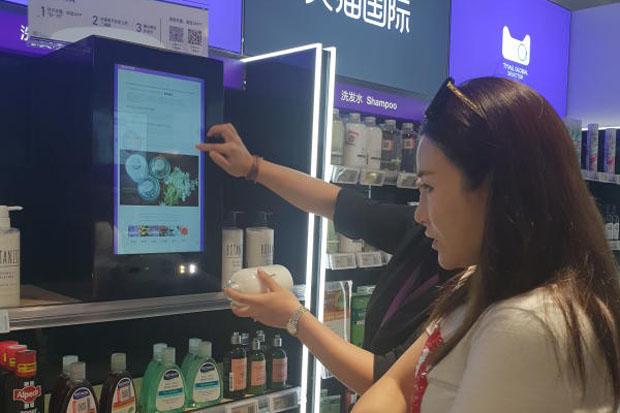Thailand: Alibaba scouting firms to feed apps
Alibaba Group is aggressively luring Thai brands and travel operators to its digital platform.
“Thailand is one of the strategic countries in Asean where Alibaba will bring the core commerce and technology infrastructure for payment, logistics and big data used in China to replicate the successful digital transformation,” James Xu, deputy chief representative for Thailand at Alibaba Group, told Thai reporters during a media trip at Alibaba’s Hangzhou headquarters.
“We are in discussions with partners for warehouse construction, and we are exploring bringing Cainiao’s data analytic technology for smart logistics to Alibaba’s Smart Digital Hub in the Eastern Economic Corridor [EEC],” Mr Xu said.
This will make Thailand a logistics hub to connect China and the CLMV (Cambodia, Laos, Myanmar, Vietnam). Smart logistics is key infrastructure for cross-border digital commerce.
Mr Xu said the move is part of the company’s long-term goal of overseas expansion, connecting 2 billion consumers and 10 million merchants.
Qian Yi, global business development and sourcing global director of Tmall under Alibaba Group, said China is the world’s largest retail market with a value of US$4.88 trillion (162 trillion baht).
Online penetration in China accounts for 20% of total retail and is expected to be 33% by 2020.
At least 40% of online consumers in China are willing to purchase imported goods.
There are 731 million internet users in China, 60% of the total population, feeding the continuous growth of online consumption.
The middle-income segment is also growing, expecting to encompass 600 million people by 2020 from 300 million at present.
The Chinese government also encourages foreign brands by reducing import tariffs for consumer goods. It aims to have copy0 trillion in foreign goods in China in the next five years, from copy.1 trillion-1.2 trillion at present.
Mr Yi said that this year Alibaba is working aggressively to have a greater selection of Thai brands open online flagship stores on the business-to-consumer (B2C) Tmall Global platform, which does not require a legal entity in China.
Tmall has 617 million monthly mobile users, taking up 61% of the B2C market in China. Globally, it has 18,000 overseas brands from 70 countries.
Tmall buyers today mostly purchase products from Europe and Japan, while the popularity of Thai brands is growing, especially in cosmetics, fresh fruits, snacks and latex pillows.
In April 2018, Tmall opened China’s first offline integrated cross-border commerce store called Tmall Global Selector at West Lake Intime Mall in Hangzhou to allow customers to touch and feel imported products in the shop to order online.
Tmall Fresh, under Tmall, is a B2C platform for merchants to sell food directly to consumers in China, including fruit, meat, seafood, eggs, vegetables and ice cream.
Tmall Fresh sources fresh foods from 13 countries through a direct platform worldwide called Win Chain. Thailand is the second-largest source market for Tmall Fresh and expects to be the No.1 Tmall Fresh supplier in the future, overtaking Australia.
Last year, during Tmall’s “11.11” sales campaign, there were over 13 million products sold, with durian ranking in the top 10 best-sellers. Tmall is exploring more frozen fruit to be sold from Thailand.
Tmall will promote fresh Thai products in its Sept 20 “Harvest Day” offers, both online and offline.
Rise of Fliggy
Alibaba Group’s lifestyle business, Fliggy, is a one-stop service online travel platform aimed at creating a fun travel experience for millennials, who number half of Fliggy’s 200 million members.
Fliggy, China’s second-largest online travel platform, lets Alipay users check in to hotels without using credit cards.
The platform enables users to create their own routes and embrace voice command and artificial intelligence to control hotel rooms.
Fliggy is the only provider that allows Chinese users to apply for a visa online for travel to 15 countries, including Thailand.
The company will introduce a collaboration with the Tourism Authority of Thailand to attract more Chinese tourists to Phuket after the July boat tragedy, Mr Xu said.
The Fliggy and Alipay apps enable 50,000 Thai merchants to access Chinese tourists.
Alibaba has a live-stream feature on its B2B platform for suppliers to demonstrate new products to buyers with real-time translations, including for Thai.
The group has secured suppliers in Bangkok and is looking at Khon Kaen and Songkhla.
Alibaba’s business-to-business platform connects over 200 countries with 10 million active buyers and 150,000 suppliers.
Source: https://www.bangkokpost.com/business/news/1518386/alibaba-scouting-firms-to-feed-apps


 English
English




